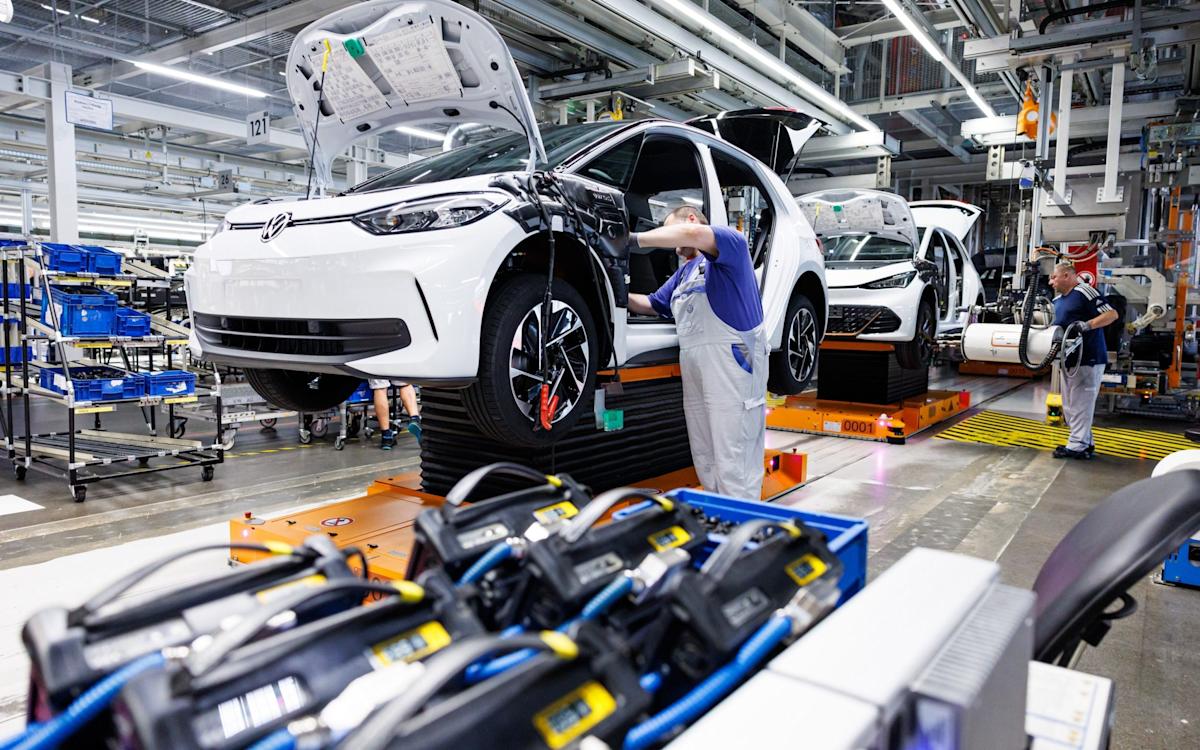Seized chip company races to split from China as car industry crisis looms
A chip maker dramatically taken over by the Dutch government is preparing to rapidly step up production outside of Beijing’s orbit.
Nexperia, which the Netherlands seized from its Chinese owner last month, is seeking to double production at its site in Malaysia, amid a Beijing trade embargo that threatens to bring car production to a standstill.
The company’s chips, which are critical to car production, are manufactured in the UK and Germany, but 80pc of them are finished in China.
Beijing has blocked exports of the finished chips, threatening the supply of the components and leaving Europe with access to only a minority of products finished in Malaysia and the Philippines.
The company is now planning to double the capacity of its facility in the Malaysian city of Seremban over the next eight months, according to job adverts and executives’ posts on LinkedIn.
The plan is unlikely to prevent issues in the car industry over the coming weeks, but it could help ease concerns in the long run if the dispute continues.
The seizure of Nexperia has sparked a diplomatic row between Beijing and The Hague. Wingtech, Nexperia’s Chinese owner, warned last week that the Dutch company faced an “existential threat” with hundreds of jobs at risk.
The Hague seized Nexperia over concerns that its chief executive, Xuezheng Zhang, was moving intellectual property and operations outside of Europe, and misusing company funds for his “self-enrichment”.
Wingtech has denied this and demanded that Mr Zhang, who has been replaced as chief executive, be reinstated.
The seizure also came amid concerns that Nexperia could be affected by the US blacklisting its Chinese parent.
Carmakers have warned that they will face severe disruptions if the blockade of finished chips from China continues. Modern cars typically contain hundreds of Nexperia’s low-cost circuits, which are used for controlling components like windows, windscreen wipers, door locks and mirrors. The company sells more than 110 billion products a year.
Amidst the supply disruption, Honda has cut back or suspended some production lines, while Volkswagen has warned that profit targets are at risk. Bosch, a major supplier to the car industry, has said it may have to furlough staff if the situation is not resolved.
Britain’s Society of Motor Manufacturers and Traders said on Friday: “Whilst the sector has made efforts to diversify its supply chains, unless progress is made quickly at governmental level, vehicle production and market supply could be severely disrupted imminently.”
Nexperia continued to send semiconductor wafers to China even after the Dutch government seized control of the company. However, last week it told customers that it had stopped supplying its Chinese operations. The company said it hoped to resume shipments in the future.



Leave a Comment
Your email address will not be published. Required fields are marked *